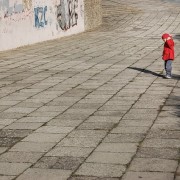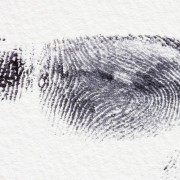NJ Supreme Court: Child Sex Abuse Accommodation Syndrome Inadmissible at Trial
The NJ Supreme Court issued a landmark decision relating to child sex abuse cases in State v. J.L.G., Docket No. A-50, 078718 (2018). The Court held that expert witnesses cannot present testimony about “Child Sexual Abuse Accommodation Syndrome” (known as “CSAAS”) at trial. If you went to trial in NJ and were convicted of sex offense, this decision may affect you! You may be able to undo your conviction as a result of this decision.
J.L.G. Case:
The issue was whether CSAAS had a reliable basis in science. In other words, can expert witnesses present testimony about CSAAS at trial? Dr. Roland Summit introduced the concept of CSAAS in 1983, which described common behaviors of child sex abuse victims.
In cases involving child sex abuse, prosecutors often introduce expert testimony about CSAAS. Many prosecutors argued that CSAAS helps to explain the behavior of abused children. Prosecutors often use CSAAS to explain why abused children may act in counterintuitive ways. For example, the State uses CSAAS to explain why child sex abuse victims never tell anyone of the abuse. Or, the State uses the concept of CSAAS to bolster the credibility of the child victim. In J.L.G., the State argued that CSAAS was reliable and that expert witnesses should be able to testify about the concept.
CSAAS Explained:
CSAAS includes the following five features:
-
Secrecy
-
Helplessness
-
Entrapment and accommodation
-
Delayed disclosure
-
Retraction
The first behavior, “secrecy,” refers to the notion that most child sex abuse victims do not report their abuse.
Second, the State’s experts explained that “helplessness” is a “precondition” to sex abuse. That is, most child sex abuse victims often allow the perpetrator to continue the abuse because of the power dynamic between a child and adult.
The third behavior refers to the way in which a child victim adjusts to sex abuse. Child victims will display either harmful or well-adjusted behaviors.
The fourth feature, “delayed disclosure,” illustrates the notion that most child victims do not reveal their abuse until much later.
Finally, “retraction” refers to when a victim discloses abuse but later denies it.
Court’s Opinion on Child Sex Abuse Accommodation Syndrome:
After reviewing the evidence, the Court found that CSAAS as a whole is not generally accepted in science. More specifically, four behaviors (secrecy, helplessness, entrapment & accommodation, and retraction) do not satisfy the standard for admissibility under Evidence Rule 702.
Only the concept of “delayed disclosure” has scientific support. Therefore, in certain instances, expert witnesses can testify about this feature at trial.
However, the Court notes that the other four concepts were not supported by scientific literature. Thus, CSAAS is not sufficiently reliable to meet the standard for admissibility at trial. As a result, expert witnesses cannot testify about CSAAS as a whole or four of its features. Moreover, a trial court judge may not admit this evidence at trial.
How Maynard Law Office Can Help You:
If a jury or judge found you guilty of child sex abuse, then you may have grounds to undo your conviction. You should consult an experienced lawyer to find out if your case utilized CSAAS evidence.
At Maynard Law Office, LLC, our legal team can review your case to determine whether you have grounds for legal relief. In the past, we have been able to identify legal errors or apply new case holdings to our clients’ cases. As a result, we have successfully vacated convictions.
Maynard Law Office, LLC, is a law firm dedicated to sex offense law. Call us today at (973) 540-0054 for a free consultation!










Leave a Reply
Want to join the discussion?Feel free to contribute!